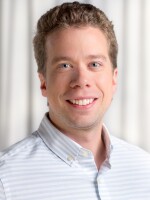
Danny Hajek
-
The spread of COVID-19, the ensuing economic crisis and the reckoning around social injustice has made 2020 a year like none other. NPR wanted to know how these events might shape political choices.
-
Patients knew José Gabriel López-Plascencia as "the doctor that served the poor." He spent over 60 years caring for low-income families left out of the healthcare system in Phoenix.
-
Javier Quiroz Castro and Estefania Betancourt Macias are nurses on the frontlines of the pandemic. They're also DACA recipients, awaiting the Supreme Court's decision on the fate of the DACA program.
-
Cathy Cody was born and raised in Albany, Ga., a close-knit community pushed to the edge by the outbreak. Albany has seen one of the nation's highest rates of infection, and she's found a way to help.
-
The bookstore called Source of Knowledge in Newark was a vibrant part of the community before the coronavirus outbreak. It's one of two African American-owned bookstores left in the state.
-
Andrea Owens-White is a florist in Albany, Ga., in one of the hardest hardest hit areas of the coronavirus pandemic. Owens-White, who tested positive for COVID-19, was forced to file for unemployment.
-
In Baton Rouge, Raj Patel is offering free rooms to medical workers and first responders during the coronavirus outbreak.
-
John Brown owns Joe Black Barber Shop in Pearland, Texas. Since the coronavirus outbreak, his barbers are out of a job. But he's lost much more in this pandemic: His mother died of COVID-19.
-
Nearly half of the 850,000 farmworkers in California are undocumented, and labor unions say sometimes they are denied sick leave. Undocumented workers are excluded from the coronavirus relief package.
-
Six priests became modern-day martyrs in one of the most high-profile religious crimes in recent Latin American history. A woman who witnessed the incident says the FBI pressured her to stay quiet.




